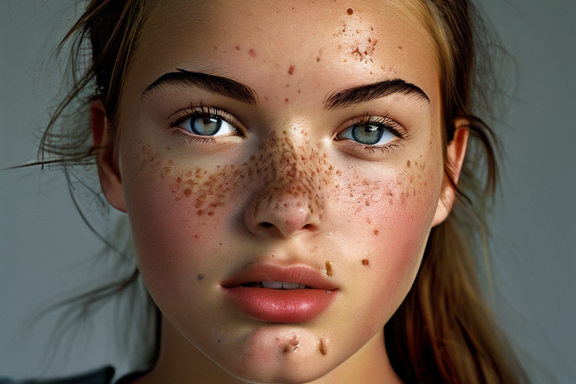Clear Skin Unveiled: Effective Acne Treatment Tips
No matter how old you are – teenagers have it especially bad, but adults can suffer from acne too – and no matter how much you hope otherwise, acne will hit you at some point in your life. Figuring out acne treatment for yourself and learning how to prevent it can be tricky. Here are some treatment ideas for your acne that we’ve noticed really working for people.
Solving the Acne Mystery
For the record, acne is not fatal but it is debilitating and painful, not to mention demoralizing. Like many maladies, no one is quite sure what the root cause is. When it comes to figuring out the cause, it isn’t as important as having a solution that works for all consumers.
Is a Cure for Acne Possible?
Cure for acne is possible but also not possible. There are many products, some working for some and not working for others, until you find a cure that fits one’s needs.
Patients Must Not Give Up Early
Acne treatment works only if somebody is persistently using it. Patience is the key here because it may take at least 8 weeks to see good results. When skin does clear, keep using products that worked for you, otherwise, your skin will quickly return back to its original state.
Professional Consult and Self-Management
Severe acne: need to consult a dermatologist. Mild acne: self-managing. Self-management can work wonders in mild acne. As such, here have provided some tips for you can tackle your acne.
Work out for immune power
The benefits of regular exercise for the immune function and the activity of the detoxification organs cannot be over-emphasized, and this is the basis of any acne-control program.
Healthy Diet
Eat at least five portions of fresh fruit and veg a day. Not only will a nutrient-rich diet help to strengthen your immune system and function as acne-fighting antioxidants, but by reducing your intake of refined sugars and fatty foods, you can minimize the risk of exacerbating some skin disorders. Also, drink plenty of water as a way of flushing out toxins from your body.
Smart Beauty Selections
Use water-based, non-allergenic makeup only. No oil-based formulae, no heavy creams, no coal tar derivatives. Wash your skin nightly to remove all makeup.
Hormonal Balance
Hormones can inflict acne flare-ups and can also be tapped to dampen outbreaks. HRT could be prescribed to you by your physician to manage acne.
Gently Cleansing Routine
Aim to avoid aggressive scrubbing, but not let your nightly skin cleansing routine be so soporific that you don’t shift a scrap of skin detritus. Look for mild cleansers, use every night, and do more vigorous ‘ex-foliation’ only once a week.
Shaving and Exfoliating
Shaving is the removal of dead skin, essentially, so it doubles up as an exfoliating treatment. Don’t shave if you have an inflamed or infection (it goes without saying), but use a shaving crème for sensitive skin.
Stress Management
Acne flare-ups can be caused by emotional stress. Develop relaxation techniques to counteract the chemical reactions.
Use these practical approaches to guide your acne journey and transition on the path to brighter days, starting right now.
Other topics that may interest you:
- Acne Treatment Essentials: 7 Key Insights to Empower You
- Effective Acne Skin Care: Proven Tips for Clear and Radiant Skin
- Acne Scars: Effective Strategies for Reclaiming Your Skin's Glory
- Acne Control the Natural Way: Effective Tips for Clear Skin
- Debunking Acne and Skin Problem Myths: Separating Fact from Fiction
Questions And Answers
How diverse is the range of conditions that fall under "acne"?
Acne encompasses various conditions, including blemishes, blackheads, and whiteheads, affecting different skin types.
Can acne emerge at any age?
And the good news is, it’s not just something you have to put up with during your adolescence – acne can strike at any age, and successful treatment approaches are in demand.
Is a one-size-fits-all acne treatment approach effective?
Not as you would expect: successful acne treatment cannot be ever-green due to genetic and other individual differences in many aspects of skin.
How long does it usually take for acne treatments to show results?
It is important to remember generally it will take approximately 8 weeks from first use to notice any real change in acne conditions.
Can acne reappear after successful treatment?
True, modules: Acne may come back. To avoid relapses, it is important to stay with the treatment that worked.
Should I consult a dermatologist for all types of acne?
Severe cases do warrant professional help but the milder versions can usually be self-treated by following the tips below.
Remember as well that experiences with acne vary depending on the individual, and that the treatment of acne also varies depending on the patient. This is why, if possible, seeking the advice of a dermatologist is advisable for finding the most rewarding outcomes.



0 Comments